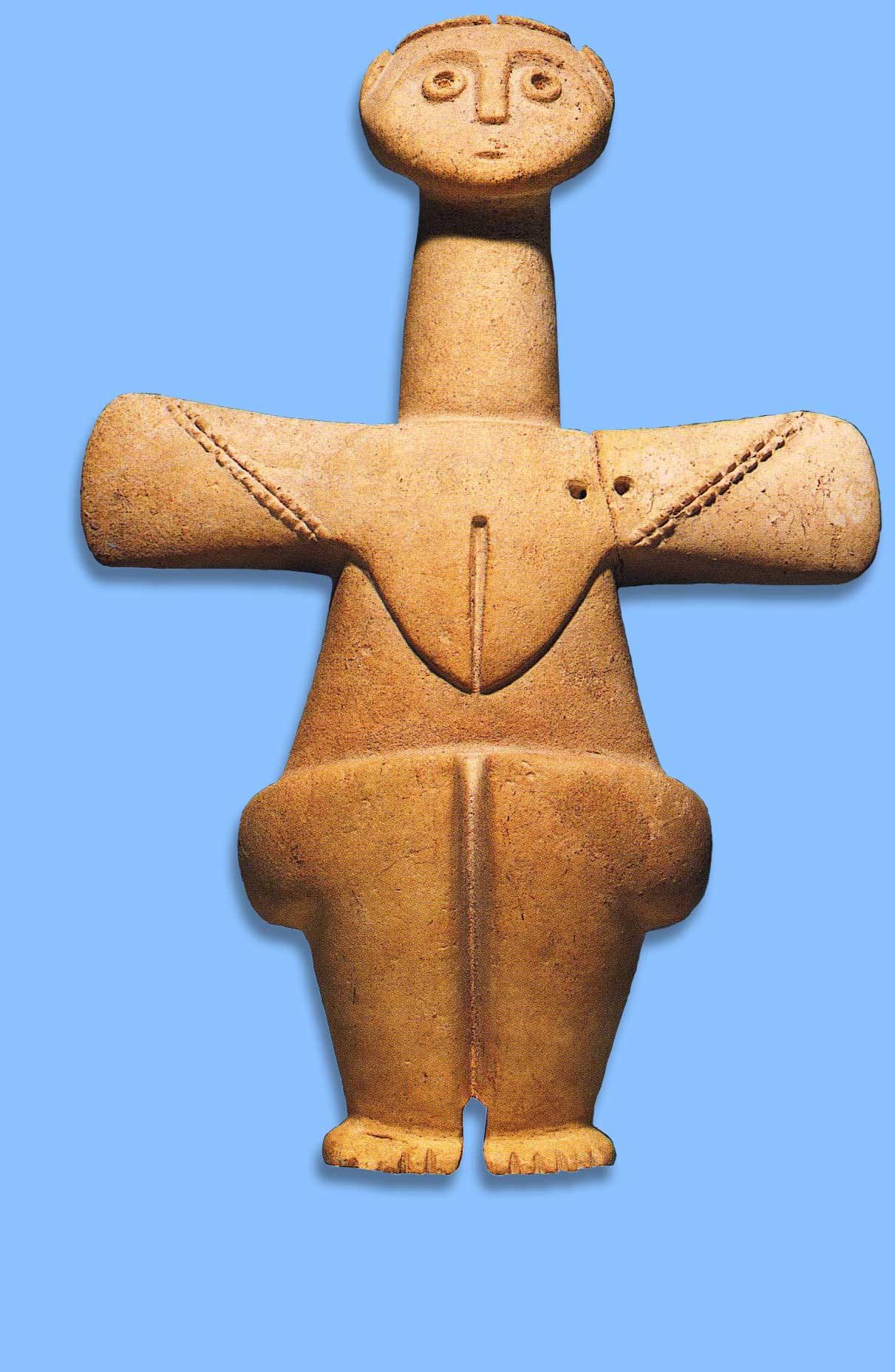In the field of Greek Lyric I have published articles on Homer (Cahier des Etudes Anciennes 24 [1990] 349-355, Sappho (Phoenix 43 [1989] 95-99) and Anacreon (Classical World 94 [2001] 37-47). I contributed the chapter on "Personal Poetry" in a A Companion to the Greek Lyric Poets, ed. D. E. Gerber (Brill 1997) 133-220. This is a review of the Greek poets conventionally understood to be composing for private, rather than public occasions. I focused upon the various scholarly questions attending the texts of Alcaeus, Sappho, Ibycus, Anacreon and Corinna.
In the area of Ancient Religion and women's participation in cult life I published "Sacred Prostitution and Aphrodite" (Studies in Religion 21.2 [1992] 145-162), "Love, War and the Goddess" (The Ancient World 26.2 [1995] 205-223) and "The Ungendering of Aphrodite" (Bulletin of the American School of Oriental Research [2002] 369-382). The last essay looks at the bisexual feature of the Cyprian great goddess as depicted in artifacts and in descriptions of Cypriot Aphrodite, and speculates on the significance of androgynous deities. I included some of this material in the article, "The Cyprian Redeemed. Venereal Influence in Paradiso," which I wrote for Dante and the Unorthodox, ed. J. Miller (Wilfrid Laurier Press 2005).
In the field of Greek poetry I published "The Mindful Muse" in the Proceedings from FIEC XI (Athens 2002). This is a study of collective memory in Greek poetry, and the way in which it reflects group identity in an archaic community. Recollection, particularly of the exploits of a common legendary ancestor, enables a group to join a continuum that reaches back into mythical time, and from this to project future events. In a study of the "aetiological syntax" of Greek poetic texts, where words like epei can mean both "when" and "since," my paper argues that something which is post hoc can also be in some sense propter hoc. This contrasts in a striking way with our own one-dimensional and one-directional view of time. This is a subject I pursued when invited to give a plenary address at the XVI Simposio Nacional de Estudios Clasicos in Buenos Aires, Argentina (2000). While in Buenos Aires I gave a course on Sappho and her literary legacy. In 2001 I published an article in Classical World on Anacreon, entitled "To Box or Not to Box with Eros? Anacreon Fr. 396Page."
For teaching the course on women in the ancient world I composed a Platonic-style pair of dialogues set in the Underworld, in which the subject is the woman's body. One discussion is conducted by Plato and the male medical writers, the other by Sappho and women drawn from ancient literary texts. This was published in Classical World in 2006.
I turned recently to the implications of the claim made by epinician poets that they were swearing an oath. Oaths, whether assertory or promissory, are normally taken when there is uncertainty, but Pindar and Bacchylides, in declaring the validity of an athletic victory under oath, were acting as guarantors of an event that was already certain. The apparent anomaly can only be resolved through an account of the early Greek understanding of truth-as-revelation. I have given public lectures on this subject, and have covered the subject in a chapter of the monograph Horkos, eds. Alan Somerstein and Judith Fletcher, Exeter Press 2007.
In the course of exploring cult centres in Greek communities in Southern Italy I came across a bronze curse table (currently in the antiquities museum in Naples) in which a woman curses another woman for stealing clothing and some gold coins from her. She demands redress exacted by Persephone and her attendants. I have published my interpretation of this tablet in Minima Epigraphica et Papyrologica VII-VIII (2004-2005) 249-256.
|
 |


